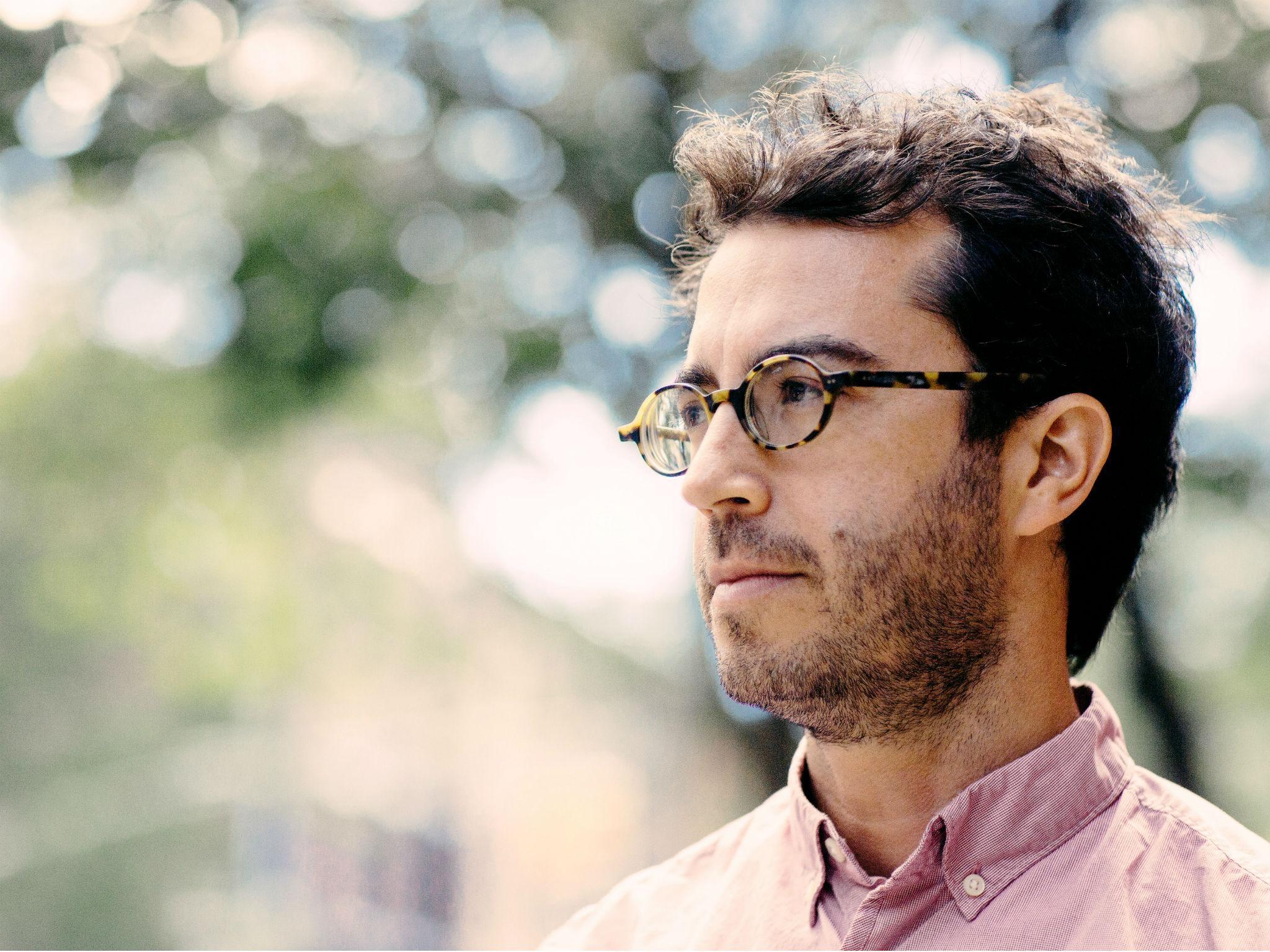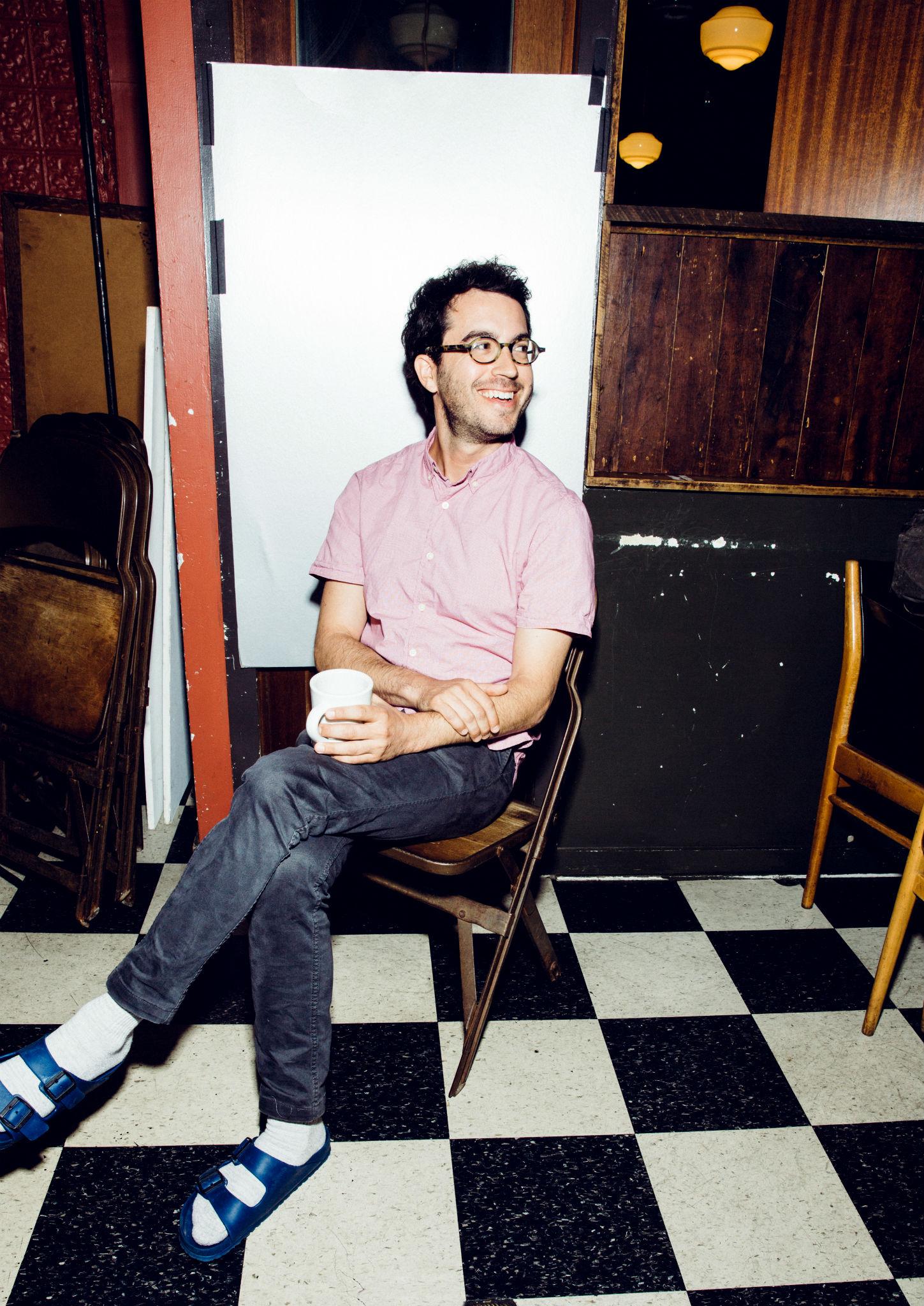Jonathan Safran Foer interview: ‘The meaning of the book is not something that is mine’
Jonathan Safran Foer returns with ‘Here I Am’, his first novel in more than a decade. Here, he talks to Karen Heller about the ‘unobvious’ good in writing a book

Your support helps us to tell the story
From reproductive rights to climate change to Big Tech, The Independent is on the ground when the story is developing. Whether it's investigating the financials of Elon Musk's pro-Trump PAC or producing our latest documentary, 'The A Word', which shines a light on the American women fighting for reproductive rights, we know how important it is to parse out the facts from the messaging.
At such a critical moment in US history, we need reporters on the ground. Your donation allows us to keep sending journalists to speak to both sides of the story.
The Independent is trusted by Americans across the entire political spectrum. And unlike many other quality news outlets, we choose not to lock Americans out of our reporting and analysis with paywalls. We believe quality journalism should be available to everyone, paid for by those who can afford it.
Your support makes all the difference.“I consider this my first book,” says Jonathan Safran Foer, a statement that, taken at face value, is nonsense.
Here I Am is Foer's fourth book, a brick, twice the length of the others, a swing for the fences, four generations of fathers and sons, his first novel in more than a decade and the first set in his native Washington, DC. “I also think of this as a short book, a fast book, page-turning,” he says.
The book is about divorce, Israel, upper Northwest Washington and sexting, and took “either 10 months or 25 years to write” says Foer, suggesting that it required possibly a lifetime of experience or less than a year at his computer.
Foer is one of Washington's foremost novelists, who happens to live in Brooklyn. Sitting in a cafe near his Boerum Hill home, he looks far younger than his 39 years, acts considerably older. He is gracious, answers every question, even those he may not want to, but often in koans, as though the long route might prove more interesting.
“I consider my first book to be an experience,” he says, recalling how stunned he was to have written the critically acclaimed Everything Is Illuminated, the story of a young man's trip to Ukraine to find the woman who saved his grandfather from the Nazis. Foer recalls how amazed he was watching his manuscript spitting out of a communal printer as an undergraduate at Princeton, where Joyce Carol Oates served as his mentor.
“The second book was a response to the first,” he says, referring to Extremely Loud and Incredibly Close, about a 9-year-old's quest for answers following his father's death in the World Trade Centre attacks.
After his first novel was initially rejected by a slew of agents and publishers, finally to be published in the spring of 2002, Foer scored the golden ticket in the literary lottery. His works became critical hits, bestsellers and movies, the second with Tom Hanks and Sandra Bullock. Eating Animals, a 2009 investigation into American food production and his struggle with vegetarianism, also earned praise and sales.
He lives in a $5.4m (£4m) brownstone. He is in a relationship with a famous actress (Michelle Williams) while exchanging emails, which were recently published in a New York Times fashion supplement, with another (Natalie Portman). Only a handful of leading American authors are friends, he says, but he seems to know an awful lot of them.
He is famously one of the Jonathans (the other two being Lethem and Franzen, the latter a close friend) and also one of the Foers (the middle brother between Franklin and Joshua, also writers).
Yet he considers himself a writer by accident. He'd planned to become a doctor. “There's a certain kind of freedom that I value,” he says. “Writing was the best approximation of the life that I wanted.”
His editor Eric Chinski says: “Writing for him became a way to communicate other things, wrestling with emotional questions – and, in this book, political questions and family questions – not writing for writing's sake.”

Here I Am is Foer's first work since he became the father of two sons (now 10 and 7) and since his divorce from novelist Nicole Krauss (The History of Love). The novel, to be published in 25 countries, centres on the divorce of a couple with three sons that's ignited by the discovery of a secret mobile phone loaded with a torrent of sexts. Krauss read the manuscript, he says. Writing about divorce was not difficult.
“It would be if Nicole was upset. She wasn't,” he says. “We are very close. There's nothing to recognise, actually, in the book.”
Yet the book may be parsed for biography. “It's not autobiographical,” says Chinski, “but so firmly grounded in personal experience and emotional energy.”
Protagonist Jacob Bloch works on an HBO miniseries, which Foer did on All Talk – Ben Stiller and Alan Alda were attached – before aborting the project and transforming aspects of it into this novel.
Jacob is a recovering novelist who won the National Jewish Book Award at age 24. Which also happens to be true of Foer.
The Washington of Here I Am is Foer's Washington: Cleveland Park (specifically Newark Street; Foer grew up on Reno Road), Georgetown Day School (his alma mater), Adas Israel synagogue (the family's temple, where Foer had his bar mitzvah), the Uptown Theatre. The Great Wall Szechuan House in Logan Circle is a favourite Bloch family chomping ground (but not the Foers'; their favourite Chinese restaurant closed). Jacob recalls crying on November 18, 1985, a date that lives in infamy among veteran regional football fans, “when Lawrence Taylor ended Joe Theismann's career” by fracturing the Redskins quarterback's leg.
“It was as inevitable that I would write about Washington as that I would move to New York,” Foer says. “It felt good to me. I felt at home with it as a setting.”
Foer talks like a Chekhov character. He looks like one, too, in owl-like glasses – except for the thick socks paired with blue rubber Birkenstocks.
“In high school, he had his own way of presenting himself,” says his childhood friend Michael Sachse. “Which was like a 60-year-old man.”
Writing about his roots, the touchstones of his youth, allowed Foer the freedom to explore larger issues. “Once I feel OK at home, then the rest is the rest. It's just the world. If I worried about what people thought, I would never get anywhere. I would be stifled,” says Foer, who teaches creative writing at New York University. “You don't want to ask, 'Is it good or is it bad? Is it funny or not funny? Is it smart or is it useful or not useful?' If you ask those questions, you start to deviate from the freedom to make something that is true.”
He says, “I'm not above caring what people think. I do care. But it's not useful – or worse, it's destructive – to think about those things when working.”
“Here I Am,” the words from Genesis spoken by Abraham in response to God's order to sacrifice his son, Isaac, is Foer's most Jewish novel, featuring a bar mitzvah, the Holocaust, Zionism, an earthquake in Israel and possible war. One character observes, “It's harder to be Jewish. It doesn't give you every best chance.”
Foer demurs, politely, to this observation, too. “I see it as a novel about home and choice,” he says, “how people talk and negotiate with each other.”
“Jon is not religious, and as far as I know, it's not like he's studied Judaism much either,” says Sachse. “The focus on Jewish identity and culture is, to me, one of the surprising aspects of this and his other books.” Foer does not belong to any temple.
“It's a funny conflict in my life,” he says. “I am not a joiner, but I long to be a joiner.”
His childhood, he says, was not especially literary. “There was no sense it was inevitable” that all three brothers would become acclaimed writers, he says. Franklin is a former editor of The New Republic and author of How Soccer Explains the World. Joshua is a science writer and the author of Moonwalking With Einstein. They did boyish stuff, riding bikes, cleaning pools, going to concerts.
Jonathan's great trauma was a 1985 explosion at Murch Elementary School, where he was one of four children badly injured while making handheld fireworks at a science camp. He is considering turning the experience into a novel.
Writing gave him the life he wanted, but he sees a certain absurdity in the exercise.
“Writing is a particularly mundane daily existence. It's about as mundane as they come. You sit at a desk in front of a computer. Or in front of blank paper. You're not really talking to other people. You're not going to see the world. It's as sedentary as it gets,” he says. “The good of writing is just so unobvious. I would say it's about as unobvious as anything one can do – even less obvious than investment banking.” He pauses. “Though I've obviously come to some kind of answer.”
He is that rare author who looks forward to the book tour, many cities, countries, and appears content to talk about his work.
“It's super-pleasurable, wonderful. I spent a whole lot of time not talking to readers,” he says, before rushing off to Manhattan for a therapist appointment. “Readers multiply the richness of the book, the experience. Obviously, I put a lot of thought into the book, try to produce the best book possible, but the meaning of the book is not something that is mine.”
© The Washington Post
Join our commenting forum
Join thought-provoking conversations, follow other Independent readers and see their replies
Comments